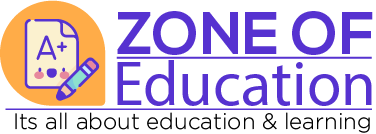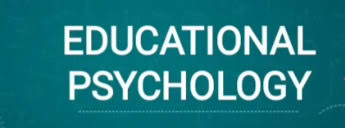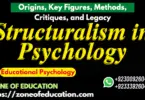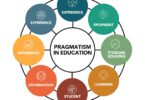Educational psychology is a branch of psychology that focuses on understanding how students learn and retain knowledge within educational settings.
Educational Psychology investigates the processes involved in learning, including cognitive, emotional, and social influences, and applies psychological principles to improve educational objectives.
Educational psychologists study a wide range of topics such as motivation, memory, perception, and problem-solving to understand how students acquire, process, and retain information. The field explores how individual differences, such as learning styles, developmental stages, and socio-emotional factors, affect learning and teaching strategies.
Educational psychology also aims to optimize the educational environment by developing effective teaching methods, designing instructional materials, and crafting assessments that accurately measure learning progress. It is the integration of psychology and education, so educational psychology provides teachers, administrators, and policymakers with tools to create supportive, inclusive, and productive learning experiences for students across various ages and abilities.
Educational psychology is a branch of psychology that is the scientific study of educational problems. Educational psychology, as a science, consists of theories and principles applicable to the teaching-learning process. It provides theoretical knowledge for a better understanding of the teaching-learning process in the context of all its complexities and intricacies. In a few words, educational psychology is a study of the learning and teaching process. Education psychology is a posture applied to social science. Educational psychologists study individual teachers & students as social beings in varying social set-ups and situations.
After reading this article, you will be able to answer
- Define educational psychology.
- Elaborate the history of educational psychology
- Define the broad fields of educational psychology
- Explain the relationships between learner, learning, teacher, and learning situation.
Definition of Educational Psychology
“The study of human behavior and inner mental processes is specific to educational psychology.”
Educational Psychology means such education which explains all those changes that take place right from birth till becoming adolescence at various stages of development. This knowledge asks about all good or bad effects which affect a child’s development, and in the light of this study forms such rules and regulations which are kept in mind during planning and management of the school. (Dr. Abdul-Hai-Alvi)
“Educational psychology is the name of that change that takes place as a result of social interaction which a child has developed based on his experience and makes use of these during the process of learning. (Garrison)
“It is such a knowledge which is related to student’s reality, factors acting upon him and evaluation of all derived results in the class. (Asubal)
“Educational psychology is such a knowledge which helps in solving teaching, learning process. (Gage and Berliner)
Educational psychology has been defined in so many ways to make you understand its boundaries and to bring you close to its clear concept. You must have noticed that some definitions are long and include training besides education. Some are so limited that they confine education to the classroom only and some take education only as the above definitions
The History of Educational Psychology
Educational psychology, as a discipline, explores how students learn, the processes of learning, and how educational environments can be optimized to enhance learning. Although the discipline is new but yet it was present from the Plato Idealism to the current date.
With the passage of time, many influential thinkers have shaped this field, contributing foundational theories that range from Plato’s idealism to cognitive psychology’s focus on mental processes. Here, I am going to discuss the key figures and ideas that have paved the way for modern educational psychology.
Most of the studies shows that the Edward Lee Thorndike is the father of educational psychology and states that educational psychology is the study of the behavior of a student including his memory, conceptual process, and ability to retain knowledge. But Some Educational Psychologist consider that Johann Herbart is considered the father of educational psychology. Because he believed the student’s interest in a topic and the teacher’s influence were key factors in learning. He also thought that teachers should consider what students already know when presenting new information.
1. The Beginnings: Plato and Aristotle
The origins of educational psychology may be traced back to the classical era with Plato and Aristotle. Plato (Idealism) proposed that knowledge is innate—each person is born with an inherent understanding that can be perfected through experience and growth. His emphasis on experiential learning as a means of realizing innate potential laid early groundwork for later educational theories.
Aristotle (Realisim), Plato’s student, added depth to this idea that learning is facilitated by “associations” among ideas. He identified several principles that enhance understanding: contiguity (ideas experienced together become associated), succession (the order of ideas affects recall), similarity, and contrast. These concepts, rooted in observation, foreshadowed the associative learning theories in modern psychology.
2. The Empirical Foundation of John Locke
John Locke (1632–1704), an Enlightenment thinker, argued that the human mind starts as a “tabula rasa,” or blank slate, where knowledge and ideas develop through experience. Locke’s emphasis on external influences as primary sources of learning was groundbreaking. He introduced empiricism as a means to verify knowledge and established a conceptual framework that fueled the development of scientific research methodologies in both psychology and education.
3. Developmental Differences: John Amos Comenius
During the 17th century, John Amos Comenius (1592–1670), a Moravian educator, brought attention to age-appropriate learning. He noted that children’s cognitive abilities differ by age and that learning is more effective when it aligns with their developmental stage and personal experiences. Comenius’s work laid the foundation for later developmental theories and the concept of “scaffolding” in education.
4. Naturalism and Child-Centered Education: Jean-Jacques Rousseau
Jean-Jacques Rousseau (1712–1778), a French philosopher (Naturalist-Naturalism), presented a revolutionary perspective in his work Emile (1762). Rousseau championed the idea of educating children according to their natural tendencies and curiosity. He criticized traditional, authoritarian methods and advocated for learning through experience and exploration. His emphasis on individual growth and freedom inspired later educational theorists to prioritize child-centered approaches.
5. Practical Applications in Education: Johann Heinrich Pestalozzi
Following Rousseau’s ideals, Johann Heinrich Pestalozzi (1746–1827) known as the “father of pedagogy” and “father of modern education” is often regarded as one of the first to apply psychological principles to teaching. He believed that learning should leverage children’s interests and inherent curiosity. Pestalozzi’s methods aimed to develop not only academic skills but also social and emotional qualities, making him a forerunner in holistic education.
6. Scientific Approach to Education: Herbert Spencer and Johann Friedrich Herbart
In the 19th century, Herbert Spencer contributed to educational psychology by advocating for a scientific examination of teaching methods. He underscored the importance of systematic approaches to pedagogy and laid groundwork for empirical research in education.
Johann Friedrich Herbart (1776–1841), however, is often celebrated as the also considered as Father of Educational Psychology, and “Father of scientific pedagogy.” Herbart emphasized that learning builds on sequential associations of ideas relevant to the learner’s experiences, a process he called apperception. This idea highlighted the importance of connecting new information to existing knowledge, creating a precursor to theories of motivation in education.
7. The Experimental Tradition: Wilhelm Wundt and Edward Titchener
Wilhelm Wundt (1832–1920), often considered the father of experimental psychology, founded a laboratory in 1879 that advanced Herbart’s ideas on consciousness and associations. His research helped formalize psychology as a scientific discipline.
One of Wundt’s students, Edward Bradford Titchener (1867–1927), brought the scientific study of the mind to the United States, emphasizing introspection and exploring higher cognitive processes. Titchener viewed the mind’s structure as central to understanding psychology, laying the groundwork for American educational psychology’s growth.
8. Functionalism and Adaptive Learning: John Dewey
At the turn of the 20th century, John Dewey (1859–1952) emerged as a pivotal figure, challenging Titchener’s ideas. Dewey argued that a stimulus and response relationship should be analyzed as a whole or “reflex arc.” His theory of functionalism suggested that behaviors are adaptive, serving practical purposes in response to environmental demands. Dewey’s focus on experience-based learning promoted the idea that learning occurs through active participation and problem-solving, influencing future directions in educational psychology.
9. Learning through Connectionism: Edward Thorndike
Edward Thorndike (1874–1949) built on Dewey’s functionalism but focused specifically on stimulus-response connections in learning, leading to his Laws
- Law of Readiness: Learning is most effective when the learner is ready and motivated to learn. For example, employees learn more effectively when they feel ready.
- Law of Exercise: Learning occurs through repetition and practice
- Law of Effect: A response is more likely to be repeated if it’s followed by a positive outcome, and less likely to be repeated if it’s followed by a negative outcome. For example, if a child cleans their room and you praise them, they’re more likely to clean their room again. This principle held that positive experiences reinforce learning connections, while negative experiences weaken them. Thorndike’s extensive work in developing educational assessments and his multi-volume Educational Psychology (1914) influenced educational theory for decades.

10. The Rise of Cognitive Psychology
In1950s, cognitive psychology began to shift the focus back to the mind and its role in learning, countering the behaviorist stimulus-response models that had dominated the field. Researchers began exploring information processing, memory, perception, and problem-solving as central aspects of learning. This cognitive revolution reestablished the importance of internal mental processes, emphasizing that understanding, retention, and transfer of knowledge are central to educational success.
The Evolution Continues
Educational psychology has traveled a long journey from philosophical roots to a scientific discipline that integrates cognitive, social, and behavioral theories. Today, educational psychology is at the forefront of research on how people learn, encompassing advanced fields like neuroscience, and adaptive learning technologies. This evolving field continues to deepen our understanding of how best to support learners in diverse educational settings, creating more effective, inclusive, and personalized learning experiences.
As an applied science, if draws on theories, principles, and practices of psychology and constructs application in the area of education. Educational psychology studies the child’s behavior and suggests remedies to improve and to be an effective learner. The scope of educational psychology is confined to the study of individual behavior within the context of the educational institutional framework. Several pioneers laid the foundation of educational psychology before the beginning of the 20th century. These pioneers stand out in the early history of educational psychology.
Three Most Important Phases in the History of Educational Psychology
In the first Phase Soon after launching his first psychology textbook, “Principles of Psychology,” in 1890, William James (1842–1901) delivered a series of lectures called “Talks to Teachers” and discussed the applications of psychology to educate children. James argued that laboratory psychology experiments often tell us how to effectively teach children. He emphasized on importance of observing teaching and learning in classrooms for improving education.
A second major figure in shaping the field of educational psychology was John Dewey (1859-1952), who became a driving force in the practical application of psychology.
Dewey stabilized the first major educational psychology laboratory in the United States, at the University of Chicago in 1894.
Dewey believed that children learn best by doing.
Dewey advocated that education should focus on children as a whole.
He emphasized the child’s adaptation to the environment.
Dewey believed that children should not be just narrowly educated in academic topics. They should learn how to think and adapt to a world outside of school.
Children should learn how to be problem solvers.
Dewey was of the view that all children deserve to have a competent education.
This democratic ideal was not in place at the beginning of Dewey’s career. In the later part of the nineteenth century, when quality education was reserved for a small portion of children, especially boys from wealthy families, Dewey was one of the influential psychologist educators who pushed for a competent education for all children and boys, as well as children from the different socioeconomic and ethnic backgrounds.
He argued that all children should be given the same educational opportunities and that education should be tailored to the needs of each individual.
He also argued that education should be based on scientific principles and should be accessible to all.
A third pioneer was E.L. Thorndike (1874–1949), who initiated an emphasis on assessment and measurement.
He promoted the scientific underpinnings of learning. He argued that one of the school’s most important tasks is the development of children’s reasoning skills.
He excelled at doing “exacting scientific studies” of teaching and learning (Beatty, 1998).
Thorndike especially promoted the idea that educational psychology must have a scientific base that should focus strongly on measurement.
He believed that educational psychology should be based on the scientific method and that it should be used to create more effective teaching methods.
He also advocated for more research in the field of educational psychology.
There are many common tasks in teaching. Educational psychology gives us help in solving the problems that arise in performing those tasks. These problems can be found in all phases of teaching. Before teaching, during teaching, and post-instructional-and in all parts of the teaching process—setting objectives, understanding student characteristics, appreciating the nature of the learning process, selecting and using teaching methods, and evaluating learning.
Educational objectives reflect the purpose of schooling in general and of teaching in particular. Educational psychology deals with ways of stating, classifying, and using these objectives in teaching.
Student characteristics must be considered in understanding the different ways students learn. How they develop intellectually, socially, and emotionally. Individual differences affect the teaching, and learning process. It also influences teachers’ choice of teaching methods and ways in which teachers use and combine these methods to achieve the best results.
Finally, educational psychology helps us evaluate learning using tests, projects, or demonstrations of various kinds. The teaching tasks and the problems related to them set the research agenda for educational psychologists as they investigate effective teaching and learning.
Scope of Educational Psychology
There are four main subjects of concern and interest of the educational psychologist:
- The Teacher
- The Learner
- The Learning Process
- The Learning Environment
The Teacher and Learner
Educational psychology is an organized study, its facts do not only depend upon the teacher’s concepts of personal limited experience, they are rather based upon vast experiences and deep observations evaluated in the light of scientific principles that prove its reality on a scientific basis.
Educational psychology consists of vast concepts, and its working area is not limited to the classroom only; it deals with students and beyond the classroom too. It is not taught through formal methods only but is spreading through non-formal methods.
The teacher is the center of educational psychology, which is the result of his concepts and environment, and the study of the two resultants is essential to understanding it.
Bringing a specific change in teacher’s behavior, information, and personalities, educational psychology provides the scientific foundation. It means that changes in children are not the result of an abrupt action. Their foundation is based on the mutual relationship of cause and action and all individual differences and their consideration during teaching is included in its success.
It is not wrong to say that the basic difference between the ancient and modern educational systems is that the teacher of the past never considered individual differences between the teacher and the children and presumed that all students were very intelligent, quiet, patient, and tolerant, therefore each child must be able to understand difficult methods of languages, logic, and mathematical formulas quite easily, whereas today educational psychology has advised the teacher that neither each child can study every subject nor he should be taught forcefully.
To teach each child, the teacher has to bring a change in his teaching methods very carefully. Besides this, the learning period for each child can also differ from child to child, i.e., one child has the potential to pick up mathematics at the age of 6 years, another at the age of 7 years, and perhaps the third one at the age of 8 years.
Educational psychology plays a special attention towards abnormal children. Sometimes individual differences create a very difficult situation as some children are very intelligent, whereas others are dull or retarded children.
For abnormal children educational psychology has emphasized upon separate curriculum for retarded children.
For proper and correct learning teaching process, separate teaching method is very necessary.
Students mean learners of all levels. As a teacher, you would like to know what the characteristics of children of different ages are, what kind of information they can easily understand, and how that information should be provided to them. And not only this, but besides this it is important to know how hard they are different from each other in abilities, strengths and weaknesses, and stages of development. You must have often heard students saying this “Teachers treat us as if we are ignorant” and “our teachers ought to know that we are totally ignorant” about his topic, and he should explain it more elaborately and clearly. Sometimes they say see our teacher has wasted so much time for such an ordinary matter, even a child knows it.
It is not easy for a teacher to know at any level how students have come prepared and what are their characteristics.
Therefore educational psychology provides him this kind of information and teachers pay attention towards them. In the light of those instructions and information teachers prepare the objectives of their lessons, and select relevant methods of teaching.
You teach one subject to two different classes and if you are unaware of educational psychology, you will use one teaching method in both classes. But if you keep in mind then those characteristics, that affect the learning process, you will certainly adopt two different methods of teaching in different classes. Because may students in one section have come with preparation, they might have good control over the language, and perhaps most of them are from urban areas,s and in the other section the majority is from rural areas, have less control over language, and have been appearing privately.
Now while teaching other sections instead of audio-visual aids you will use Blackboard more often, will give more examples, and questions and answers will be asked more. You might ask the first section for a detailed study and to write a report on those topics, their topics for article writing will be given according to their characteristics otherwise, it is obvious that the result of the second group will be a failure.
In short educational psychology helps in understanding children’s characteristics, points out their characteristics, and tells about their relationship with each other how they affect each other, and what effect it causes upon learning, which are from heredity and which are achieved (learned. Teaching the learning process becomes easy by understanding this information and a road is paved for student education.
The Learning Process
The learning process is another important topic of educational psychology. Educational psychology has played an important role in making teacher’s teaching responsibilities more and more effective.
A teacher tries to understand a child’s personality and behavior in order to find out ways and means to part education to the child, along with his personality development side by side. Several questions come up for making effective learning, for example, what to teach and what not to teach the child.
Why do children learn such things that teachers do not like why do children forget or why do they soon forget something that kind of information children can retain for a longer period there are many such questions which are related to learning. In short, the study of teaching-learning process environment and methods of teaching are some important topics of educational psychology.
A teacher cannot succeed in his purpose until and unless his taught knowledge does not retain properly in students minds and at the time of need students are able to utilize that knowledge properly.
For effective lesson, it is necessary to make students quite familiar with teaching learning process. In this regard teacher himself should be familiar with this process i.e. how to teach a child so that his present teaching may combine with his last teaching material how the child should be taken from easy to difficult so that he may learn easily and his interest may remain in the lesson how it should be repeated and revised, so that children may learn more and more in an effective way in less time.
Besides this teacher should teach children some important rules of learning i.e. best study time why not to study several subjects at a time which subjects can be learnt together if needed so.
In learning second the most important topic is methodology of teaching. Teacher should take guidance from psychology to select the method of teaching, countering the class, age level, aptitude environment and need of the students. He can teach many things during playing some games to the small children.
Playing games is essential and most fundamental requirement for motivation of young children. Similarly during teaching process, use of Audio-Visual-Aids will prove to be helpful for secondary and higher secondary students.
Educational Psychology not only teaches to this extent, it rather guides how much teaching material is required and when and how to present to the students. In the light of educational psychology from introduction to revision and from the use of blackboard to the technique of questions, teachers are benefited.
The Learning Environment: Besides methods of teaching, learning environment is an important topic in educational psychology. Teacher’s personality, building, classroom size ventilation, proper lighting arrangement, suitable furniture, good administration, curriculum planning etc play important role. Generally speaking not only school, but social environment and family background are also discussed in it.
Educational Psychology Guidance, Counseling:
Several students face several different kinds of problems due to education, teachers, and their colleagues, and students, emotional, social and relationships. An average teacher does not pay any attention to the guidance and help of such students, in such cases educational psychologists provide help through child guidance clinics, guidance and counseling.
For criminal minded, harsh, dull, quarrelsome, bewildered, and permissive and backward children psychological and help is provided through psychologists, brain specialists and social workers jointly.
Educational Psychology and Mental Health:
Where educational psychology has provided better differences, and regulations of students’ educational activities has pointed out all such factors, causes and stimuli that directly or indirectly affect the student’s mental health. If they not only become retarded in education, they also lack behind in practical life. Mental regardless and backwardness is usually caused by bad environment, impure food, unsatisfactory emotional and social demands, or unavailability of satisfactory biological and psychological needs. If children are not permitted to perform educational activities according to their potentialities even then their mental health is inversely affected. Precautionary measures can be taken for children’s mental Hygiene with the help of psychological research.







